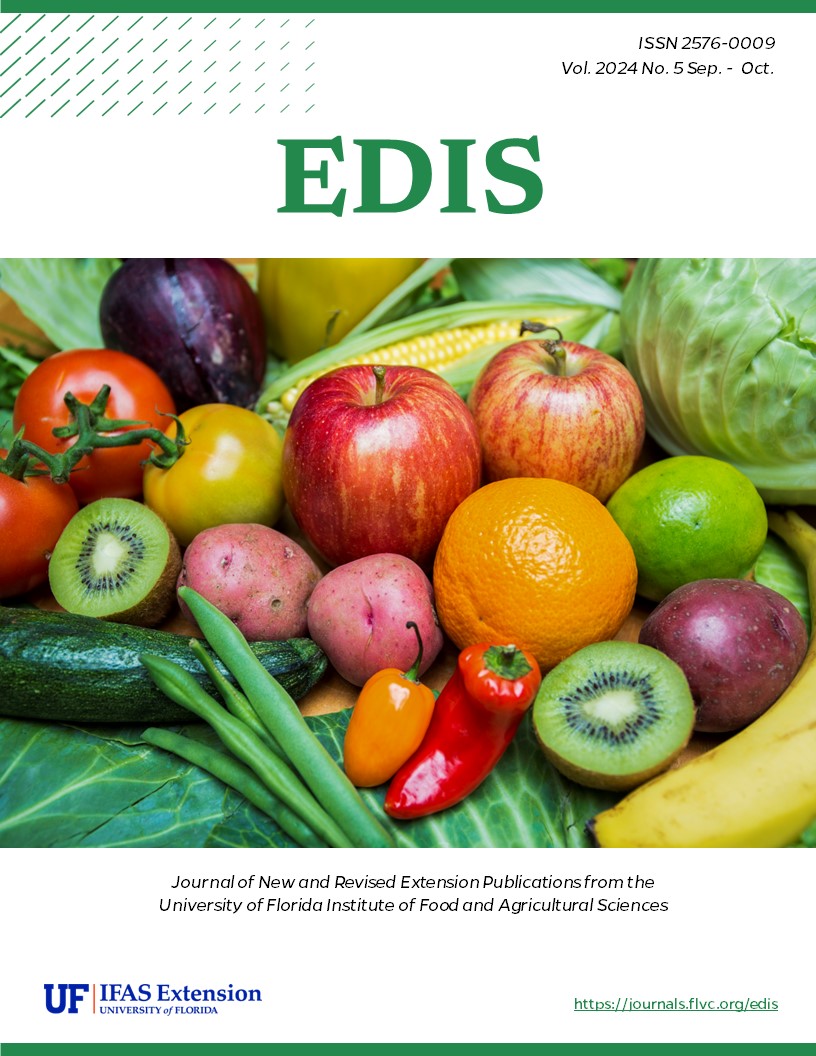Abstract
This publication provides information on conventional fresh market sweet corn acreage, volume, and pricing for the top four producing states: California, Florida, Georgia, and New York. (Other states produce a substantial amount of processed market sweet corn but are not the focus here.) This is one in a series of Ask IFAS publications focused on trends in Florida’s five most economically important specialty crops (excluding citrus): fresh market sweet corn, bell peppers, tomatoes, watermelons, and strawberries. This information will be useful to producers, Extension agents, and others interested in trends concerning specialty crop commodities. This publication serves as a unique source summarizing important information about the specialty crop market and production trends.
References
Florida Department of Agriculture and Consumer Services-Division of Marketing and Development. 2021. Mexico’s Ag-Export Impacts on Florida Agriculture. FDACS.
Rettke, D. 2019. “California Sweet Corn Production Moves into Central Valley.” Fresh Plaza. Accessed on March 5, 2024. Available at https://www.freshplaza.com/north-america/article/9117190/california-sweet-corn-production-moves-into-central-valley/
Smith, R., J. Agular, and J. Caprile. 1997. Sweet Corn Production in California. University of California Agriculture and Natural Resources. Available at https://doi.org/10.3733/ucanr.7223
The Crop Profile/PMSP database. 2007. Crop Profile for Sweet Corn in Florida. https://ipmdata.ipmcenters.org/documents/cropprofiles/FLsweetcorn2007.pdf
USDA Agricultural Marketing Service. 2020. Specialty crop 10,000 lb. movement. USDA-AMS, Washington, DC https://marketnews.usda.gov/mnp/fv-report-config-step1?type=movement
USDA National Agricultural Statistics Service. 2015. Vegetables 2014 Summary. USDA-NASS, Washington, DC. https://downloads.usda.library.cornell.edu/usda-esmis/files/02870v86p/b2773z217/br86b639p/VegeSumm-01-29-2015.pdf
USDA National Agricultural Statistics Service. 2016. Vegetables 2015 Summary. USDA-NASS, Washington, DC. https://downloads.usda.library.cornell.edu/usda-esmis/files/02870v86p/n009w4740/9c67wq616/VegeSumm-02-04-2016.pdf
USDA National Agricultural Statistics Service. 2017a. NASS - Quick Stats. USDA National Agricultural Statistics Service. https://quickstats.nass.usda.gov
USDA National Agricultural Statistics Service. 2017b. Vegetables 2016 Summary. USDA-NASS, Washington, DC. https://www.nass.usda.gov/Publications/Todays_Reports/reports/vegean17.pdf
USDA National Agricultural Statistics Service. 2018. Vegetables 2017 Summary. USDA-NASS, Washington, DC. https://www.nass.usda.gov/Publications/Todays_Reports/reports/vegean18.pdf
USDA National Agricultural Statistics Service. 2019. Vegetables 2018 Summary. USDA-NASS, Washington, DC. https://downloads.usda.library.cornell.edu/usda-esmis/files/02870v86p/gm80j322z/5138jn50j/vegean19.pdf
USDA National Agricultural Statistics Service. 2020. Vegetables 2019 Summary. USDA-NASS, Washington, DC. https://www.nass.usda.gov/Publications/Todays_Reports/reports/vegean20.pdf
USDA National Agricultural Statistics Service. 2021. Vegetables 2020 Summary. USDA-NASS, Washington, DC. https://downloads.usda.library.cornell.edu/usda-esmis/files/02870v86p/j6731x86f/9306tr664/vegean21.pdf
USDA National Agricultural Statistics Service. 2022. Vegetables 2021 Summary. USDA-NASS, Washington, DC. https://downloads.usda.library.cornell.edu/usda-esmis/files/02870v86p/zs25zc490/9593vz15q/vegean22.pdf
USDA National Agricultural Statistics Service. 2023. Vegetables 2022 Summary. USDA-NASS, Washington, DC. https://downloads.usda.library.cornell.edu/usda-esmis/files/02870v86p/hq37x121v/4b29ck28c/vegean23.pdf

This work is licensed under a Creative Commons Attribution-NonCommercial-NoDerivatives 4.0 International License.
Copyright (c) 2024 UF/IFAS

